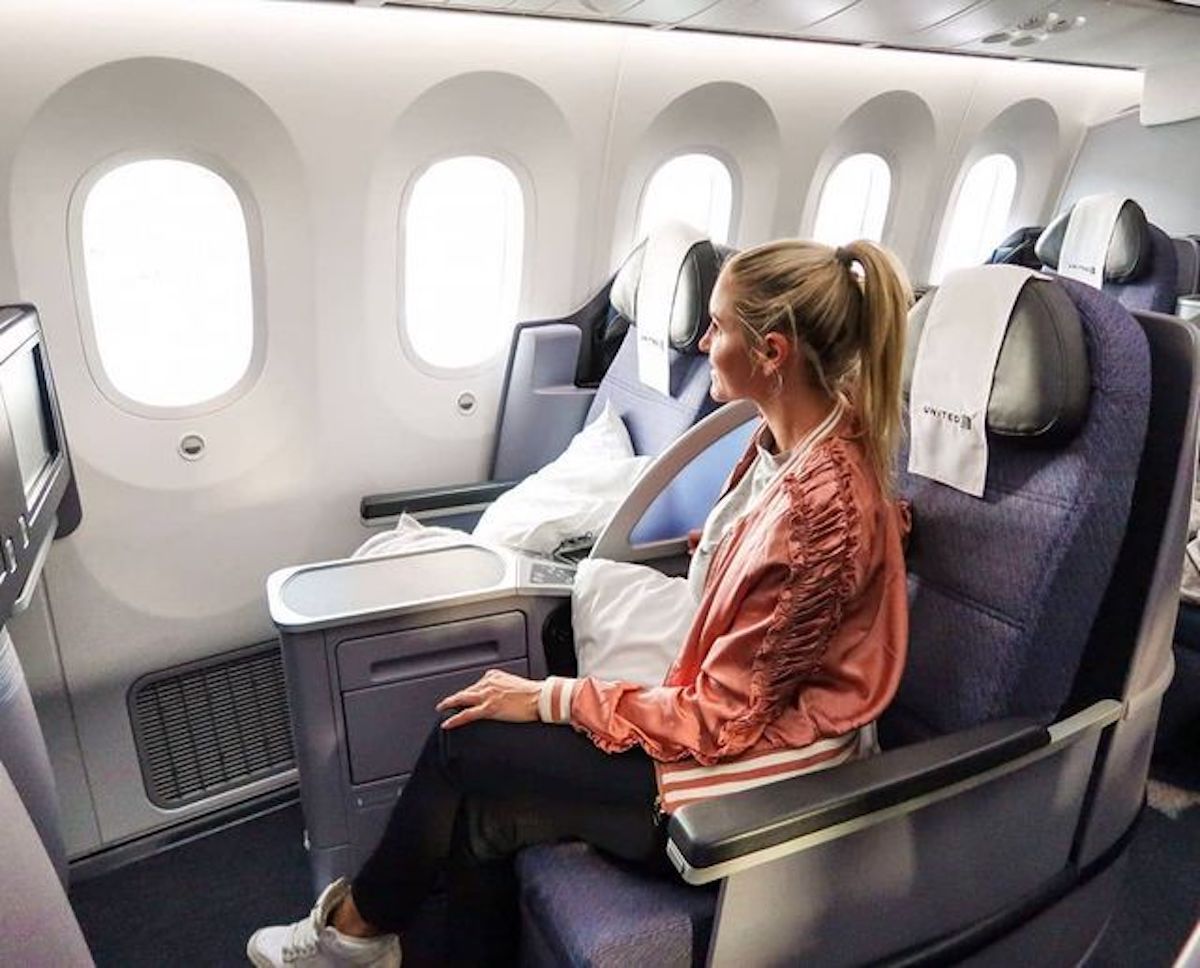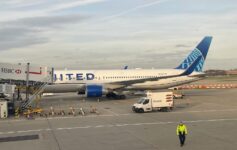
United Airlines CEO Scott Kirby has admitted that business travel has plateaued, which points to either a looming recession or a fundamental change in the way businesses think about travel.
United Airlines CEO: Business Travel Has PlateauedPlateaued
Appearing on CNBC’s Squawk Box, Kirby discussed the state of air travel as 2022 draws to a close and his projects for the year ahead. While he initially denied there were any signs to suggest recession is imminent, when pressed on business travel Kirby conceded that business travel has plateaued:
“The old metrics are probably wrong. Our data indicates…and this is probably indicative of pre-recession behavior, has plateaued, even though are total revenues are still going up.”
Kirby attributes the rise in revenue to new travel patterns he calls “hybrid work” that allow employees to work remotely and therefore add more leisure travel to their lives.
> Read More:United Airlines Credits “Hybrid Work” For Higher Travel Demand
Even with this bad news, Kirby points out a number of good signs. First Kirby is excited over the pilot shortage:
“For the big airlines, that’s good news. Because there is a pilot shortage in the airline industry, we have real cost convergence going on. Low-cost carriers used to pay their employees less and use that to have lower fares. They can’t hire people now unless they get real close to being competitive with us.”
As View From The Wing notes, Kirby likes higher pilot wages because it hurts United’s low-cost competitors.
Second, Kirby believes airfare will continue to rise.
“Airfares still 40% lower in real terms than 10-15 years ago – “we are coming up from a low bottom…We think there is more room to run on this once people have the confidence about the economy.”
In terms of the impact of the plateau on profit, Kirby argues that the profit outlook is rosy:
“We are basically back to 2019 profit margins which was basically near an all-time high for us. Even with a recessionary environment, even with and high fuel prices we are coming back to nearly record-high profit margins.”
Summing up the industry, Kirby observes that revenue and profits will continue to rise because “demand is structurally higher, supply is structurally higher. Econ 101.”
.@united CEO Scott Kirby on @SquawkCNBC this morning.
“Because there is a pilot shortage in the airline industry, we have real cost convergence going on. Low cost carriers used to pay their employees less and use that to have lower fares…” pic.twitter.com/309vnrukQk
— Ross Feinstein (@RossFeinstein) December 6, 2022
CONCLUSION
United CEO Kirby has conceded that the rebound in business travel has tapered off. While that is in-line with concerns over a looming recession, at what point are we going to confirm that there is a fundamental evolution in travel away from “traditional” business travel? Or will it come roaring back to at some point?
image: @rebeccalouisefitness / Instagram




Business travel has not plateaued. Problem is that airlines are offering poor customer service, few flights, crazily expensive airfares and all that together with business people getting used to meet online means less business travelers are willing to travel. I am a business traveler myself. Easily 150,000 miles before the pandemic. I have been flying a lot since masks were gone but here are the problems I am facing. There are much less options to fly than before. Thus, it makes my planning much more difficult since I want to maximize my time with my family meaning I want to fly to a meeting but fly back home asap. Most of those options are gone. Then you add very poor customer service from most airlines. Grumpy people, not really recognition for status (being a Diamond with Delta for 10 years means nothing when you get middle seats), etc… Last, airfares. I used to fly to Denver once a week. I never paid more than $300. Not it is normal to pay $700. No thanks. Thus, unless airlines stop ripping off customers, start to recognize who the real customers are, offer a lounge where you can enter without waiting in line and have a place to seat and add more flights to make people’s lives easier, I will do everything I can to do my meetings online and not fly.
@Santastico – with these airfares, airline profit margins are in high single digits, coming out of a period of major losses, even with the aid factored in. This is much lower than many other industries. Curious what profit margin do you think is fair.
@Mark: I am not saying it is fair or not. They have a big problem when they need to charge prices to meet their profit margins but these prices are way above what business travelers are willing to pay. If you know how you can get to profit margins that are acceptable there are only two ways: increase revenues or decrease costs. The prices they are charging are more than people are willing to pay. Good luck with that.
Business travel demand has plateau’d for a variety of reasons. First, airfares are sky high and while the staffing and operational disruptions of the spring and summer seem to have abated visibly, there are still customer service issues across the board that make business travel challenging. Businesses have learned, over the pandemic, to adjust and the need for face to face meetings has diminished considerably, and that demand is probably not going to bounce back to 2019 levels. There is also pressure on businesses to reduce their carbon footprint, and air travel is a huge contributor to it, though there isn’t all that much that can be done there. The economic outlook is cloudy at best, it is the end of the year, and there is apprehension about 2023.
My company has been making sales call through the pandemic, but at a lower rate even as we come out of it. In the past we would fly out to show off an initial prototype, now we often times will do a team’s call first then make the in person visit when it’s more complete. Not to mention some of our clients are still working from home so we don’t always have offices to visit. My travel this year was probably about 30% lower than 2019 because of this.
All the recession talk seems like if anything is going to be a self fulfilling prophecy. You have guys like bezos going around telling people to stop buying things and everyone else on tv beating the recession drum… gee, what might happen?
I’m chuckling because the office has been under attack since Office Space and Silicon Valley came out which called for “open offices” where increasingly large numbers of employees were shoved onto shared desks to be watched over. I view the term “collaborative” the same way that home buyers react to the term “cozy” from realtors.
For example: In my own case, upper management had talked about doing such a “consolidation” with the office that had been put on hold due to COVID and the office died and didn’t come back. People “quiet quitted” the office and come in 2 days a week but this ruins whatever physical “collaboration” was in place.
So in the past, for business meetings, one could know that the whole staff was available but now they’d have to schedule special time in the office for that assuming the office even exists anymore.
I think a hybrid office could work if they provided (comfortable) environments and entire teams agreed to come in on certain rotating days such as monday-tuesday-wednesday, then next week monday, wednesday, friday and sat everyone together. Then various teams could at least once per month meet each other as they overlapped. Instead, “hybrid offices” are a disaster where if I come in 2 days a week, I’ll be hoteled in some random section where nobody knows where I am and I’m on zoom meetings all day anyway.
Can you make a business work when people don’t know each other and don’t interact except for occasional arranged virtual calls or a meeting people are forced to come in for? Time will tell. Currently, I think many businesses are using up their reservoir of pre-COVID human capital and knowledge. It may depend upon the business. Personally, I think the human element is undervalued, but I had come to that conclusion before COVID.
United’s international pricing seems to be still based on a corporate contract mode (i.e., high retail prices and little upgrade space), so UA would not seem to be trying to go after the individual work+leisure market very hard.
Anyone who flies often can see this clearly. The men in their suites and on their laptops their entire flight are in the minority. First class is mostly filled with leisure travelers and people enjoying their lives compared to the old dude stuck in a job they hate.
I personally love seeing these people get upset when Group 1 on AA is filled with average people dressed for fun. The looks from some of them is hilarious as you know they are thinking these people can’t be in FC.
The airline business changed and companies realize traveling is a waste of shareholders capital in many situations.
Yup the front cabin mix has changed – the upcharge to first vs coach is lower than pre COVID, part of that is due to a higher floor – discount coach fares are higher. Add in the bag fee savings and more advance purchasers who aren’t frequent fliers are upfront.
We’ll see how that evolves as the airlines refine their pricing models.
‘busy time’ patterns are also fascinating – midday Wednesday now busy but Sunday night or even Thurs afternoon not so much
But a lot fewer ‘pajama’ fliers than 12-18 months ago when the coach fares were rock bottom and more people were on furlough / not at offices
Most of the long haul 777-300 flights I’m on are full in Polaris, with few upgrades, looking at the list. Are these really leisure travelers? Most of them tend to be a bit more frugal, especially when you see what UA is charging for Polaris and premium economy.
So we get less “road warriors” that think they’re the sh1t while obtaining top status on their company’s dime? Less bluetooth douchebags in lounges? Sounds good to me
Thanks for sharing the old United ad. I appreciate the style of the boss.
I tend to agree with other comments.
United used to provide a far better product in Polaris…and using the Pandemic as an excuse now is not good enough.
Plenty of airlines in Business have hot towels, seperate food courses with extensive offerings, dessert trolleys.
On top of that…fares for Polaris are going up and up…no wonder Kirby reckons there is a plateau- prices need to go down and service improved to at least pre pandemic levels.
Blame in on Zoom!!!
Looks like typos have been upgraded and no longer buried in the body text but featured now in paragraph headings:
“ United Airlines CEO: Business Travel Has PlateauedPlateaued”
No, they’re still there. Should be “… our total revenues …” in this quote
“The old metrics are probably wrong. Our data indicates…and this is probably indicative of pre-recession behavior, has plateaued, even though are total revenues are still going up.”